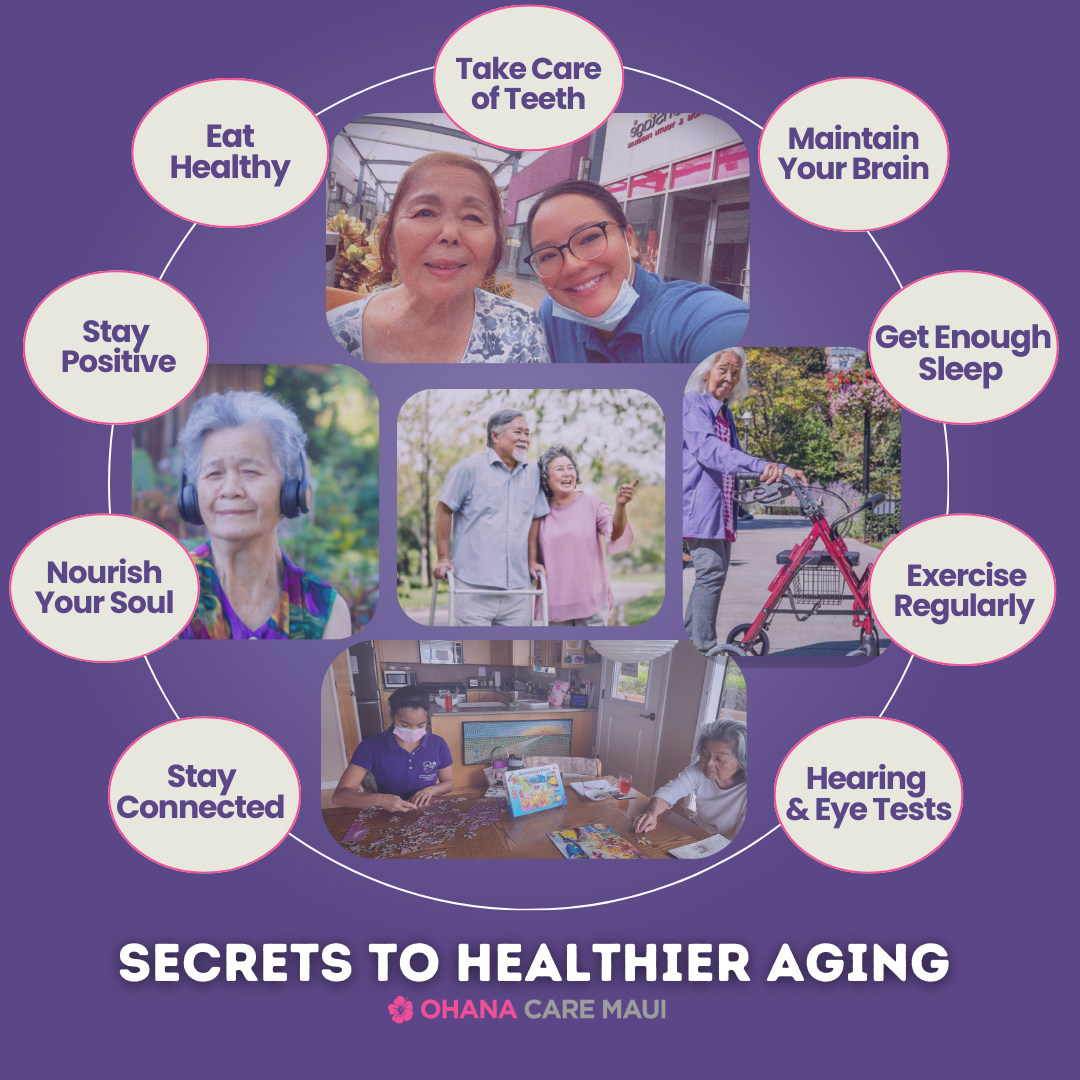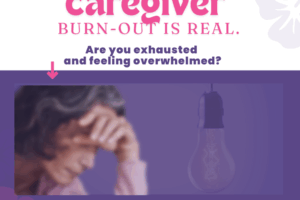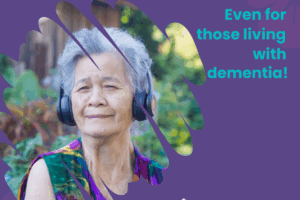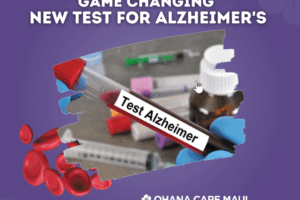Secrets to Healthier Aging: 10 Simple Tips for a Vibrant Life.

Unlock the Secrets to Healthy Aging: 10 Simple Tips for a Vibrant Life.
Aging is a journey, not a destination – and how you navigate it can make all the difference!
While growing older comes with its challenges, it also brings wisdom, new experiences, and the opportunity to prioritize your well-being like never before.
Secrets to Healthier Aging: 10 Simple Tips for a Vibrant Life
The good news?
Small, intentional changes can lead to a healthier, more fulfilling life at any age.
From staying active and protecting your brain health to embracing the power of positive thinking, these 10 expert-backed tips will help you age gracefully, stay energized, and make the most of every moment.
Whether you’re 60+ or helping an Older Parent or Friend –
Let’s dive in and get ready for a healthier, happier future!
Secrets to Healthier Aging: 10 Simple Tips for a Vibrant Life.
Secrets to Healthier Aging: 10 Simple Tips for a Vibrant Life.
10 Simple Tips to Healthier Aging:
1- Keep A Positive Attitude About Aging
Studies show a positive outlook on aging leads to better health and can even help some older adults recover from mild cognitive decline.
-
- One study published in 2023 found that older adults with mild cognitive impairment were more likely to recover back to normal, if they had a more positive self-perception of aging.
-
- You can begin by taking a look your attitude about aging and work to reverse any negative beliefs or self-talk you may have.
-
- If you are supporting an aging loved one, you can gently help them to see aging differently if you can!
Please listen with empathy and compassion and begin by gently asking them to share what they believe are some positives about aging.
How uplifting would it feel if we could help them see aging in a more positive way?
2- Stay As Active As Possible
Daily exercise helps you to stay stronger, healthier, improves sleep and gives you an energy boost!
Walking has many benefits and is a simple way to stay active and be social.
Walk with a friend and use a step tracker to see your daily step count – research suggests 6,000+ steps a day can ease arthritis symptoms.
3- Strength Train Twice a Week
When you build muscle with resistance exercises it helps you to build muscle, prevent falls and keep your daily activities easier.
Make sure you are doing all four types of exercise: strength, endurance (or “cardio”), flexibility, and balance.
Remember to eat enough protein to maintain muscle mass! It is important to combine healthy eating with your exercise and strength training routines. Plan on eating about 1g of protein for every 2 pounds of body weight every day.
More on Senior Exercises from D. Kernisan in this video: Senior Excercises
4- Keep Your Teeth Healthy
There is a direct link between senior Oral Health & overall health, especially for those that are disabled, homebound, or in nursing homes who have a higher risk of poor dental health.
To keep your teeth and gums healthy, follow these simple steps:
-
- Brush your natural teeth twice a day with a soft toothbrush, and fluoride toothpaste.
-
- Floss once a day and use a water-pik, or a simple flossing device.
-
- Fluoride Mouthwash helps decrease plaque buildup and prevents cavities and tooth decay.
-
- Drink lots of water to help combat Dry Mouth and use lozenges that promote more moisture in your mouth.
-
- With Dentures be sure to brush and soak regularly to prevent food and plaque buildup.
Learn More from the National Institute on Health: Older Adults And Oral Health
5- Take Hearing and Eye Tests
Normal Aging can cause issues with your hearing and your eyesight – be sure to get regular annual check ups!
-
- Hearing loss can isolate you, potentially cause a decline in mental health and may lead to dementia. If you need a hearing aid, get some that work well for your symptoms so you can stay social and aware.
Check out SeniorLiving.org for: The Best Cheap Hearing Aids for Seniors 2025
-
- Have your eyes checked every year if you are 60+ so changes in your vision can be corrected and any problems can be diagnosed before they seriously affect your sight.
Doing this can help you drive safely for longer and stay on top of age-related vision changes like Macular Degeneration, Glaucoma, Retinopathy, Dry Eye, and Detached Retina.
If you are dealing with vision loss your ophthalmologist can recommend and plan a rehabilitation program or treatment for you. Learn More here: Senior Vision: Over 60 Years of Age
Secrets to Healthier Aging: 10 Simple Tips for a Vibrant Life.
6- Take Care Of Your Feet
Foot care is essential for older adults; it helps to avoid injuries, falls and problems that can arise from diseases like diabetes.
-
- It is important to apply moisturizer to prevent dry skin, check for cuts and sores, and cut your toenails to prevent ingrown nails.
-
- Make sure you have footwear that fits properly and supports your feet.
-
- Don’t stay in slippers all day – a more supportive pair of comfy trainers can usually help you stay up and about for longer as you age.
-
- Call your doctor if your feet become painful, feel very hot or cold, or if you have common problems like corns, bunions or ingrown toenails.
Learn More Here: Foot Care for Seniors: 10 Important Tips
7- Monitor Your Blood Pressure at Home
Home readings are often more accurate than clinic ones.
-
- If you take meds for high blood pressure, track your levels monthly to make sure they’re not too high or too low.
-
- High blood pressure, while common in older adults, can cause falls or even strokes and heart problems.
-
- Buy yourself a Blood Pressure Monitor and check it regularly. Call your doctor and get help if it stays to high!
-
- Learn What You Need to Know Here: 6 Steps to Better High Blood Pressure Treatment for Older Adults.
8- Avoid Medications That Harm Brain Function and Your Balance
Avoid common drugs that can impair your memory and your balance – these medications affect the brain and are more common than you might think!
Did you know that diphenhydramine (brand name Benadryl) slows brain function and might be associated with Alzheimer’s?
Regularly review medications to minimize cognitive risks. Learn more HERE.
9- Protect Yourself from COVID and the Flu
-
- Older adults face higher risks from COVID and seasonal flu. The latest booster helps but taking precautions, like wearing a mask in high-risk settings, does matter!
-
- Wear a mask in higher risk situations. It not only protects you from serious flu and illness but from COVID, too.
-
- COVID & Flu still remain risky for older adults, especially if they are older and frailer. During our most recent COVID wave (September 2024), we had over 1000 people per day dying of COVID, of which an estimated 90% of them were aged 65 or older.
-
- Learn More Here: COVID & Aging Adults: 2024-2025 Updates
10- Stay Social, Do What Fulfills You and Nourish Your Soul
If you often feel isolated or lonely, find ways to connect more with others. Relationships and Purpose keep us thriving and help to avoid depression!
-
- Make time for friends, family, and activities that bring you joy.
-
- Participate in volunteer work, part-time work, or hobbies that keep you engaged and connected.
-
- Take walks with friends, grab a cup of coffee or tea, and call your friends or family to stay in touch.
-
- Consider calling the Friendship Line – Founded by Dr Patrick Abore in 1973, this special non-profit service is dedicated to supporting lonely older adults emotionally and with friendly conversation! Call: 888-670-1360
The nationally-known Friendship Line is a signature program of Institute on Aging’s Center for Elderly Suicide Prevention and Grief-Related Services, and is accredited by the American Association of Suicidology.
rets to Healthier Aging: 10 Simple Tips for a Vibrant Life.
*This information is for educational purposes and cannot replace a recommendation from your healthcare professional.*
References: Better Health While Aging-Dr L Kernisan, National Institute In Health, age NI, American Optometric Association, Emory Healthcare, Institute on Aging
For more information check out the following blogs:
OR
Negative Effects of Loneliness in Older Adults
Did You Know?
Our ‘Never-ending Training’ ensures our Nurse Aides are highly skilled and always learning something new!
We continually offer skill training in our classroom –
taught by experienced personnel and industry experts covering topics that range
from bedcare, dementia care, hospice care and safety techniques to proper lifting, transfers,
bathing, and so much more!
We Call It Keeping Our Promises.  You’ll Call it Exceptional Home Care.
You’ll Call it Exceptional Home Care.
Ohana Care Maui
Part-time, Full-time or Temporary Home Care
Call Today for Free, Customized In-Home Care Consultation
From respite care to bedbound care and everything in between — including Dementia & Alzheimer’s.
24/7, Island-wide Services / Hawaii Licensed Home Care Agency / Woman-owned & Run
808-344-1285
OhanaCareMaui.com







